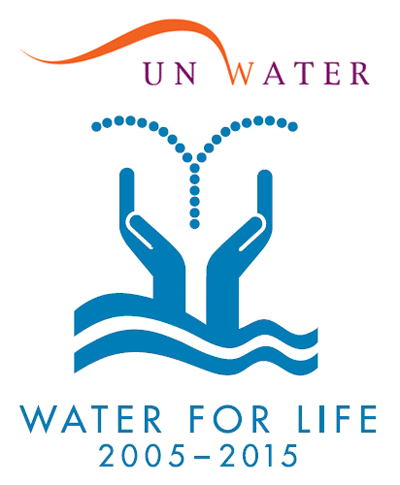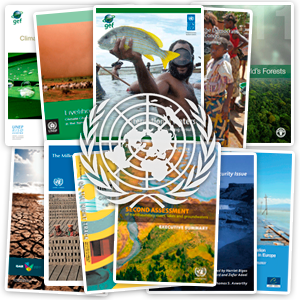- ON THE DECADE
- THE DECADE'S CAMPAIGN
- REPORTING ON PROGRESS
- THE DECADE'S PROGRAMMES
- FOCUS AREAS
-
- Access to sanitation
- Financing water
- Gender and water
- Human right to water
- Integrated Water Resources Management
- Transboundary waters
- Water and cities
- Water and energy
- Water and food security
- Water and sustainable development
- Water and the green economy
- Water cooperation
- Water quality
- Water scarcity
- FOCUS REGIONS
- RESOURCES FOR
- UN e-RESOURCES
News archives 2010
Highlights from the UN-Water development corner session on 'Sharing social tools: building a water operators' community of practice'. Montréal, Canada
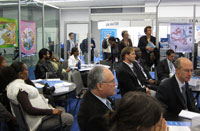 21 September 2010 - On 21 September, UN-Water convened a dialogue session at the development corner of the IWA World Water Congress. This session offered a platform for discussing and sharing different experiences, lessons learned and innovative practices in communication and awareness-raising from water operators. A particular emphasis was put on strategies in poor and rural areas.
21 September 2010 - On 21 September, UN-Water convened a dialogue session at the development corner of the IWA World Water Congress. This session offered a platform for discussing and sharing different experiences, lessons learned and innovative practices in communication and awareness-raising from water operators. A particular emphasis was put on strategies in poor and rural areas.
>> Main highlights from the UN-Water development corner session [ - 188 KB]
- 188 KB]
Highlights from the UN-Water dialogue session on 'Sick water is threatening the MDGs: A stakeholder dialogue to address capacity development and communication needs'. Stockholm, Sweden
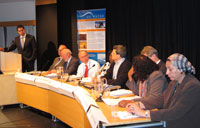 8 September 2010 - On 8 September, UN-Water convened a dialogue session at the Stockholm World Water Week. This session brought together experts and stakeholders to discuss the current situation and challenges related to water quality and wastewater production and management. The discussion built on the outcomes of the report 'Sick Water. The central role of wastewater management in sustainable development'.
8 September 2010 - On 8 September, UN-Water convened a dialogue session at the Stockholm World Water Week. This session brought together experts and stakeholders to discuss the current situation and challenges related to water quality and wastewater production and management. The discussion built on the outcomes of the report 'Sick Water. The central role of wastewater management in sustainable development'.
>> Video record of session [ 13m13s]
13m13s]
>> Main highlights from UN-Water dialogue session [ - 118 KB]
- 118 KB]
Short film contest 'Water, Climate and...Action!'
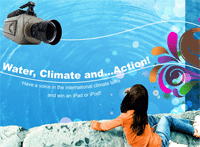 The World Water Assessment Programme (WWAP) and TheWaterChannel.tv, with the support of the Mexican National Commission (CONAGUA) and the Mexican Consejo Consultivo del Agua, organized this short film contest. The contest accepted entries from 22 September to 15 November 2010 on experiences and messages about climate change and its interactions with water and life. Selected short films were projected during a side event at the 16th Conference of the Parties of the Convention on Climate Change (COP-16) in Cancun, Mexico.
The World Water Assessment Programme (WWAP) and TheWaterChannel.tv, with the support of the Mexican National Commission (CONAGUA) and the Mexican Consejo Consultivo del Agua, organized this short film contest. The contest accepted entries from 22 September to 15 November 2010 on experiences and messages about climate change and its interactions with water and life. Selected short films were projected during a side event at the 16th Conference of the Parties of the Convention on Climate Change (COP-16) in Cancun, Mexico.
>> Water, Climate and Action website
17-19 September 2010: Make a noise for the Millennium Development Goals
 From 17 to 19 September 2010, the initiative 'Make a noise for the Millennium Development Goals' mobilized Spanish citizens against poverty in view of the celebration of the Millennium Development Goals Summit that took place in New York from 20 to 22 September.
From 17 to 19 September 2010, the initiative 'Make a noise for the Millennium Development Goals' mobilized Spanish citizens against poverty in view of the celebration of the Millennium Development Goals Summit that took place in New York from 20 to 22 September.
Health Risks in Flood-Hit Pakistan still a major concern
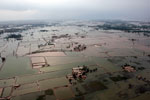 14 September 2010 - Health risks remain a major concern in flood-hit Pakistan, where large swathes of territory remain under water one month after the disaster struck and hundreds of thousands of people have yet to receive humanitarian assistance. Paul Garwood of the World Health Organization (WHO) said that disease is a major concern, particularly for water- and vector-borne diseases in flood-affected districts, especially in Sindh and Punjab.
14 September 2010 - Health risks remain a major concern in flood-hit Pakistan, where large swathes of territory remain under water one month after the disaster struck and hundreds of thousands of people have yet to receive humanitarian assistance. Paul Garwood of the World Health Organization (WHO) said that disease is a major concern, particularly for water- and vector-borne diseases in flood-affected districts, especially in Sindh and Punjab.
UN steps up flood relief in Pakistan
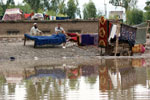 26 August 2010 - The United Nations is expanding its relief operations in Pakistan as the area inundated by flood waters continues to increase and the number of people affected by the disaster has climbed past 17 million. An area of more than 160,000 square kilometres - greater than the entire size of England, Bangladesh or Cuba - has now been ravaged by floods since exceptionally heavy monsoon rains began falling in Pakistan late last month. The number of people classed as significantly affected is almost 17.2 million, while about 1.2 million homes have been destroyed or badly damaged. The biggest fear remains potential epidemics of waterborne diseases such as diarrhoea, cholera and hepatitis. Malaria outbreaks are also a concern, particularly in areas that remain cut off from the outside world by the flood waters.
26 August 2010 - The United Nations is expanding its relief operations in Pakistan as the area inundated by flood waters continues to increase and the number of people affected by the disaster has climbed past 17 million. An area of more than 160,000 square kilometres - greater than the entire size of England, Bangladesh or Cuba - has now been ravaged by floods since exceptionally heavy monsoon rains began falling in Pakistan late last month. The number of people classed as significantly affected is almost 17.2 million, while about 1.2 million homes have been destroyed or badly damaged. The biggest fear remains potential epidemics of waterborne diseases such as diarrhoea, cholera and hepatitis. Malaria outbreaks are also a concern, particularly in areas that remain cut off from the outside world by the flood waters.
Thousands displaced as massive floods in Pakistan spread to the South
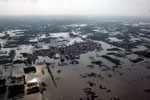 23 August 2010 - The massive floods in Pakistan have spread to the southern province of Sindh, where hundreds of thousands of people are on the move after evacuating their inundated villages as humanitarian agencies continued to deliver relief supplies to millions of those affected. "The situation in Sindh is of high concern. The water now is in Sindh and entire cities have been evacuated," said Maurizio Giuliano, spokesperson for the UN Office for the Coordination of Humanitarian Affairs (OCHA), in an interview with UN Radio. "We have hundreds of thousands of people on the move [and] if we are not able to reach all those in need fast enough, there may be a spread of waterborne diseases" he added. The floods, which began late last month in the wake of particularly heavy monsoon rains, have so far claimed 1,200 lives and destroyed homes, farmland and major infrastructure in large parts of the country. According to Government estimates, 15.4 million people are affected, with at least 6 million of them in need of food, shelter, clean water and health care.
23 August 2010 - The massive floods in Pakistan have spread to the southern province of Sindh, where hundreds of thousands of people are on the move after evacuating their inundated villages as humanitarian agencies continued to deliver relief supplies to millions of those affected. "The situation in Sindh is of high concern. The water now is in Sindh and entire cities have been evacuated," said Maurizio Giuliano, spokesperson for the UN Office for the Coordination of Humanitarian Affairs (OCHA), in an interview with UN Radio. "We have hundreds of thousands of people on the move [and] if we are not able to reach all those in need fast enough, there may be a spread of waterborne diseases" he added. The floods, which began late last month in the wake of particularly heavy monsoon rains, have so far claimed 1,200 lives and destroyed homes, farmland and major infrastructure in large parts of the country. According to Government estimates, 15.4 million people are affected, with at least 6 million of them in need of food, shelter, clean water and health care.
UN General Assembly Adopts Resolution Recognizing Access to Clean Water and Sanitation as Human Right
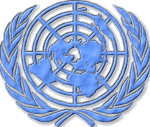 28 July 2010 - By a vote of 122 in favour to none against, with 41 abstentions, the UN General Assembly adopted on 28 July 2010 a resolution calling on States and international organizations to provide financial resources, build capacity and transfer technology, particularly to developing countries, in scaling up efforts to provide safe, clean, accessible and affordable drinking water and sanitation for all. The resolution "declares the right to safe and clean drinking water and sanitation as a human right that is essential for the full enjoyment of life and all human rights."
28 July 2010 - By a vote of 122 in favour to none against, with 41 abstentions, the UN General Assembly adopted on 28 July 2010 a resolution calling on States and international organizations to provide financial resources, build capacity and transfer technology, particularly to developing countries, in scaling up efforts to provide safe, clean, accessible and affordable drinking water and sanitation for all. The resolution "declares the right to safe and clean drinking water and sanitation as a human right that is essential for the full enjoyment of life and all human rights."
By a text on the human right to water and sanitation, the Assembly expressed deep concern that some 884 million people were without access to safe drinking water and more than 2.6 billion lacked access to basic sanitation. Bearing in mind the commitment to fully achieve the Millennium Development Goals, it expressed alarm that 1.5 million children under five years old died each year as a result of water -and sanitation- related diseases, acknowledging that safe, clean drinking water and sanitation were integral to the realization of all human rights.
Catarina de Albuquerque, the UN Independent Expert on human rights, water and sanitation, issued a statement in which she said the declaration augured well for the summit at UN Headquarters in New York in September, when world leaders are set to review progress towards the social and economic targets known as the Millennium Development Goals (MDGs).
>> Full press release
>> Related news
Launch of the Millennium Development Goals Report 2010
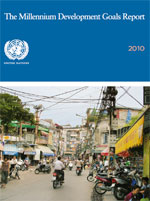 23 June 2010 - First agreed at the UN Millennium Summit in September 2000, the eight Millennium Development Goals (MDGs) set worldwide objectives for reducing extreme poverty and hunger, improving health and education, empowering women and ensuring environmental sustainability by 2015.
23 June 2010 - First agreed at the UN Millennium Summit in September 2000, the eight Millennium Development Goals (MDGs) set worldwide objectives for reducing extreme poverty and hunger, improving health and education, empowering women and ensuring environmental sustainability by 2015.
The Millennium Development Goals Report, an annual assessment of regional progress towards the Goals, reflects the most comprehensive, up-to-date data compiled by over 25 UN and international agencies. Produced by the UN Department of Economic and Social Affairs, the report has been designated by the UN General Assembly as an official input to the MDG summit. The MDG summit will take place in New York, 20-22 September 2010, to agree on a plan to accelerate global action on the Goals.
The Millennium Development Goals Report 2010, launched on 23 June by UN Secretary-General Ban Ki-moon, shows that the world has made huge strides in reducing extreme poverty, tackling HIV/AIDS, malaria and other diseases, and boosting access to clean drinking water, but is still lagging in other critical areas, such as improving maternal health and increasing access to decent sanitation.
>> Millennium Development Goals Report 2010 [ 6.34 MB]
6.34 MB]
Release of UNW-DPAC annual activity report for 2009
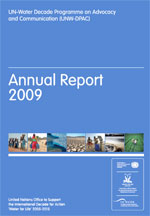 The United Nations Office to Support the International Decade for Action 'Water for Life' 2005-2015, which implements the UN-Water Decade Programme on Advocacy and Communication (UNW-DPAC), presents its annual report of activities for 2009. The report summarizes main activities undertaken during the year 2009, major contributions included surveying UN-Water members on their information and communication strategies, creating a repository of UN water and sanitation-related publications, organizing two major international events and various capacity-building workshops aimed at reinforcing capacities of the media, producing different information and awareness-raising materials on water and sanitation, and participating in different UN-Water task forces and meetings.
The United Nations Office to Support the International Decade for Action 'Water for Life' 2005-2015, which implements the UN-Water Decade Programme on Advocacy and Communication (UNW-DPAC), presents its annual report of activities for 2009. The report summarizes main activities undertaken during the year 2009, major contributions included surveying UN-Water members on their information and communication strategies, creating a repository of UN water and sanitation-related publications, organizing two major international events and various capacity-building workshops aimed at reinforcing capacities of the media, producing different information and awareness-raising materials on water and sanitation, and participating in different UN-Water task forces and meetings.
>> UNW-DPAC Annual Report for 2009 
Launch of the Global Biodiversity Outlook 3
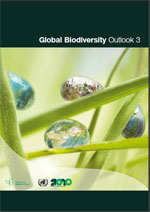 Based on scientific assessments, some 110 national reports and future scenarios for biodiversity, the ‘Global Biodiversity Outlook 3 (GBO-3)’ report shows that world leaders failed to deliver on their commitment to reduce the global rate of biodiversity loss by this year.
Based on scientific assessments, some 110 national reports and future scenarios for biodiversity, the ‘Global Biodiversity Outlook 3 (GBO-3)’ report shows that world leaders failed to deliver on their commitment to reduce the global rate of biodiversity loss by this year.
The five principal pressures directly driving biodiversity loss – habitat change, over-exploitation, pollution, invasive alien species and climate change – are either constant or increasing in intensity, according to the report.
The report, which also covers freshwater ecosystems, concludes that unless radical and creative action is taken quickly to conserve the variety of life on Earth, natural systems that support lives and livelihoods are at risk of collapsing.
The Global Biodiversity Outlook is produced by the UN Convention on Biological Diversity (UNCBD) and the UN Environment Programme (UNEP)
>> Global Biodiversity Outlook 3 Report [ - 10 MB]
- 10 MB]
Final Report of the Conference "Clean Water for a Healthy World"
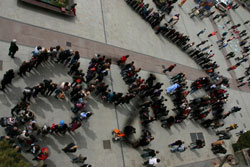 The final report of the Conference "Clean Water for a Healthy World", which was held in Zaragoza, Spain, on 22 March 2010 on the occasion of World Water Day is available online. Organized by the United Nations Office to Support the International Decade for Action 'Water for Life' 2005-2015, which implements the UN-Water Decade Programme on Advocacy and Communication (UNW-DPAC), with the support of the Government of Aragon, the Zaragoza City Council and the World Council of Civil Engineers, the conference gathered together experts on water quality issues. The report summarizes the main topics of the conference and related activities organized in Zaragoza on the occasion of World Water Day.
The final report of the Conference "Clean Water for a Healthy World", which was held in Zaragoza, Spain, on 22 March 2010 on the occasion of World Water Day is available online. Organized by the United Nations Office to Support the International Decade for Action 'Water for Life' 2005-2015, which implements the UN-Water Decade Programme on Advocacy and Communication (UNW-DPAC), with the support of the Government of Aragon, the Zaragoza City Council and the World Council of Civil Engineers, the conference gathered together experts on water quality issues. The report summarizes the main topics of the conference and related activities organized in Zaragoza on the occasion of World Water Day.
>> Final report of 'Clean Water for a Healthy World' conference [
 - 4.66 MB]
- 4.66 MB]
>> Presentations from speakers
Release of information material on water quality
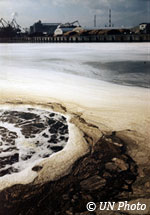 On the occasion of World Water Day and because of this year's thematic focus on water quality issues, the United Nations Office to Support the International Decade for Action 'Water for Life' 2005-2015, which implements the UN-Water Decade Programme on Advocacy and Communication, has released different information materials on water quality issues. It includes the following:
On the occasion of World Water Day and because of this year's thematic focus on water quality issues, the United Nations Office to Support the International Decade for Action 'Water for Life' 2005-2015, which implements the UN-Water Decade Programme on Advocacy and Communication, has released different information materials on water quality issues. It includes the following:
- A thematic reader on water quality [
 - 253 KB], which provides basic references for easy reading and some of the latest and most relevant UN publications on water quality. It also contains references for specific audiences such as water suppliers, educators, farmers or policy-makers;
- 253 KB], which provides basic references for easy reading and some of the latest and most relevant UN publications on water quality. It also contains references for specific audiences such as water suppliers, educators, farmers or policy-makers; - A thematic webpage on water quality which presents the main related challenges, introduces some basic concepts, and provides a large selection of UN electronic publications on water quality.
26 March 2010: Deadline to Apply for the Internship Programme of the UN Office to Support the International Decade for Action 'Water for Life' 2005-2015
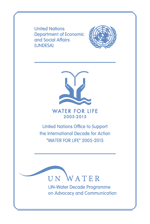 The United Nations Office to support the International Decade for Action 'Water for Life' 2005-2015, which is located in Zaragoza, Spain, provides opportunities for students enrolled in a graduate programme to undertake an internship. The objective of the internship programme is threefold: to provide a framework by which graduate and post-graduate students from diverse academic backgrounds may be assigned to a United Nations Office where their educational experience can be enhanced through practical work assignments; to expose them to the work of the United Nations; and to provide the UN office with the assistance of highly qualified students specialized in various professional fields.
The United Nations Office to support the International Decade for Action 'Water for Life' 2005-2015, which is located in Zaragoza, Spain, provides opportunities for students enrolled in a graduate programme to undertake an internship. The objective of the internship programme is threefold: to provide a framework by which graduate and post-graduate students from diverse academic backgrounds may be assigned to a United Nations Office where their educational experience can be enhanced through practical work assignments; to expose them to the work of the United Nations; and to provide the UN office with the assistance of highly qualified students specialized in various professional fields.
Interested graduate students who meet the eligibility criteria should submit their application after reading the conditions of the internship programme no later than 26 March 2010.
>> Eligibility criteria and conditions for UNW-DPAC internship programme
[ - 415 KB]
- 415 KB]
Final report of the 1st International Conference of the Global Water Operators’ Partnership Alliance: Raising Awareness and Communicating the Urgency to Act. zaragoza, Spain
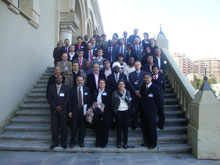 The final report of the 1st International Conference of the Global Water Operator's Partnership Alliance, which was held in Zaragoza, Spain, from 3 to 4 December 2009, is now available online. The report summarizes the work of the conference, the main topics of the discussions and concerns from participants, and presents its main conclusions.
The final report of the 1st International Conference of the Global Water Operator's Partnership Alliance, which was held in Zaragoza, Spain, from 3 to 4 December 2009, is now available online. The report summarizes the work of the conference, the main topics of the discussions and concerns from participants, and presents its main conclusions.
>> Final report of the 1st International Conference of the GWOPA [ - 33.6 MB]
- 33.6 MB]
Public consultation on the annotated table of contents of the fourth edition of the UN World Water Development Report
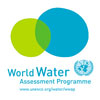 The primary goal of the ‘Water for Life’ Decade is to promote efforts to fulfil international commitments made on water and water-related issues by 2015. The United Nations World Water Assessment Programme (WWAP) monitors freshwater issues in order to provide recommendations, develop case studies, enhance assessment capacity at a national level and inform the decision-making process. Its primary product, the World Water Development Report (WWDR), is a periodic, comprehensive review providing an authoritative picture of the state of the world’s freshwater resources.
The primary goal of the ‘Water for Life’ Decade is to promote efforts to fulfil international commitments made on water and water-related issues by 2015. The United Nations World Water Assessment Programme (WWAP) monitors freshwater issues in order to provide recommendations, develop case studies, enhance assessment capacity at a national level and inform the decision-making process. Its primary product, the World Water Development Report (WWDR), is a periodic, comprehensive review providing an authoritative picture of the state of the world’s freshwater resources.
As a global report which aims to inform us all, WWAP hopes to receive your comments and contributions throughout the development of the Report. You can share your comments through the public consultation for the annotated table of contents of the WWDR4.
Subscribe to the “Water Smart” Campaign and help raise awareness on the urgency to act!
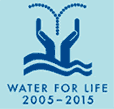 The United Nations Office to Support the International Decade for Action ‘Water for Life’ 2005-2015, which implements the UN-Water Decade Programme on Advocacy and Communication, launches a communication campaign particularly addressed to water and sanitation operators. With the “Water Smart” campaign, the Water for Life Decade would like to involve water and sanitation operators in raising awareness on the urgency to act on specific water issues through various campaign elements. If your company would like to participate, please return the registration form duly signed to the mailing address indicated in the form.
The United Nations Office to Support the International Decade for Action ‘Water for Life’ 2005-2015, which implements the UN-Water Decade Programme on Advocacy and Communication, launches a communication campaign particularly addressed to water and sanitation operators. With the “Water Smart” campaign, the Water for Life Decade would like to involve water and sanitation operators in raising awareness on the urgency to act on specific water issues through various campaign elements. If your company would like to participate, please return the registration form duly signed to the mailing address indicated in the form.
>> Water Smart Campaign background information 
>> Water Smart Campaign registration form 
>> Water for Life Voices campaign
>> Submit your voice!
>> Your #WaterForLifeVoices on Flickr
![]() Flickr
Flickr
![]() Slideshare
Slideshare
![]() Twitter
Twitter
![]() YouTube
YouTube

>> Outcome Document from OWG on Sustainable Development Goals
>> A Post-2015 Global Goal for Water: Synthesis of key findings and recommendations from UN-Water 
>> Post 2015 Water Thematic Consultation Report
>> Report of the High-Level Panel of Eminent Persons on the Post-2015 Development Agenda
>> UN-Water section on water in the post-2015 process
>> UN post-2015 agenda
>> DESA section on Post-2015
>> JMP Post-2015 global monitoring
>> Sustainable Development Goals e-Inventory
>> Summary of Stock taking meeting of Intergovernmental Negotiations on the Post-2015 Development Agenda
>> Synthesis Report of the Secretary-General on the Post-2015 Agenda
>> Decade's weekly
The Decade's weekly brings you every week the latest news from the Decade.
>> Bimonthly Publications Review 25, 26 and 27 [ - 546 Kb]
- 546 Kb]
UNW-DPAC. May 2015
>> Previous issues
Sustainable Development
15-17 January 2015: UN-Water International Zaragoza Conference ‘Water and Sustainable Development: From vision to action’
22 March 2015: World Water Day on Water and Sustainable Development
Biodiversity
2011-2020: UN Decade on Biodiversity
Deserts and Desertification
2010-2020: UN Decade for Deserts and the Fight Against Desertification
Energy
2014-2024: Decade on Sustainable Energy for All
22 March 2014: World Water Day on 'Water and Energy'
Sanitation
2011-2015: Sustainable sanitation: The Five-Year-Drive to 2015
19 November 2014: World Toilet Day
Copyright | Terms of use | Privacy notice | Site Index | Fraud alert | Help







